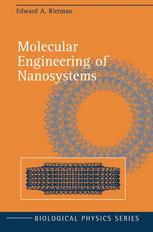

Most ebook files are in PDF format, so you can easily read them using various software such as Foxit Reader or directly on the Google Chrome browser.
Some ebook files are released by publishers in other formats such as .awz, .mobi, .epub, .fb2, etc. You may need to install specific software to read these formats on mobile/PC, such as Calibre.
Please read the tutorial at this link: https://ebookbell.com/faq
We offer FREE conversion to the popular formats you request; however, this may take some time. Therefore, right after payment, please email us, and we will try to provide the service as quickly as possible.
For some exceptional file formats or broken links (if any), please refrain from opening any disputes. Instead, email us first, and we will try to assist within a maximum of 6 hours.
EbookBell Team

4.3
98 reviewsMolecular nanotechnology is an emerging technology that allows us to build materials and systems with atomic and molecular precision by manipulating atoms and molecules at very small scales, ultimately at the single molecule scale. Since the properties of materials depend on how their atoms are arranged, the ability to manipulate atoms and molecules at the nano-scale will allow us to create new materials, to improve current materials, and to build systems heretofore only dreamt of. The implications of this technology are great: continued revolutions in computer chip technology, continued revolutions in manufacturing, new and stronger materials, and highly precise medical instruments and treatments.
It is only recently that advances in scanning probe microscopy, biotechnology (mainly protein and genetic engineering), and solution-phase chemistry have been defined as tools to implement the technology. These and other advances in the technologies of physics, chemistry and biology are converging to provide the methodology for a molecular-scale technology. This book provides the professional with an overview of current methodologies in the field, with emphasis on the implementation of current research.